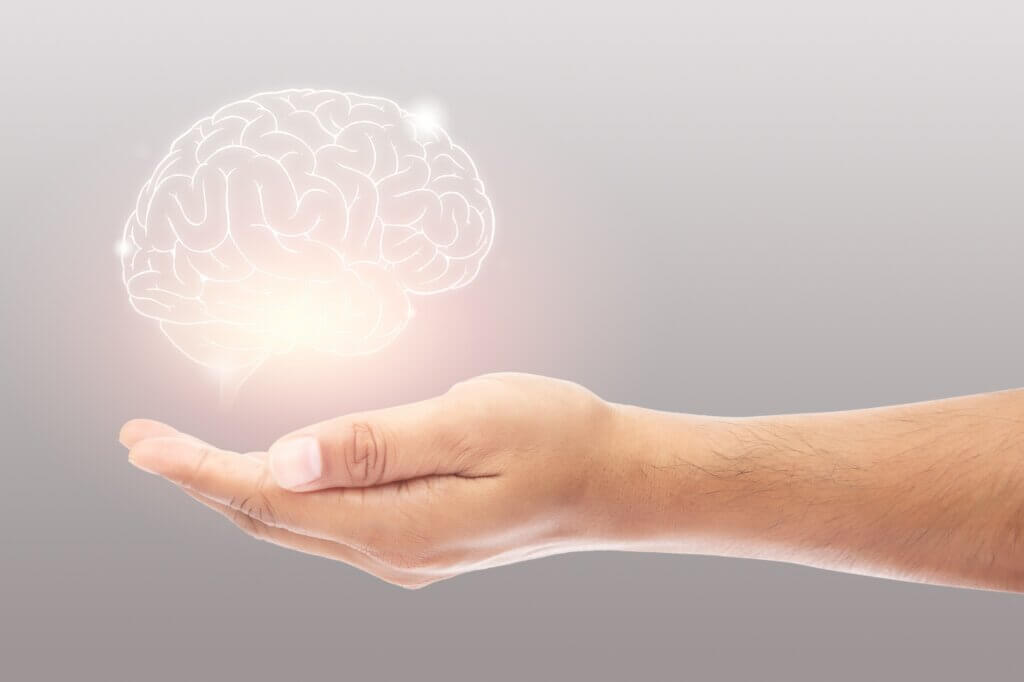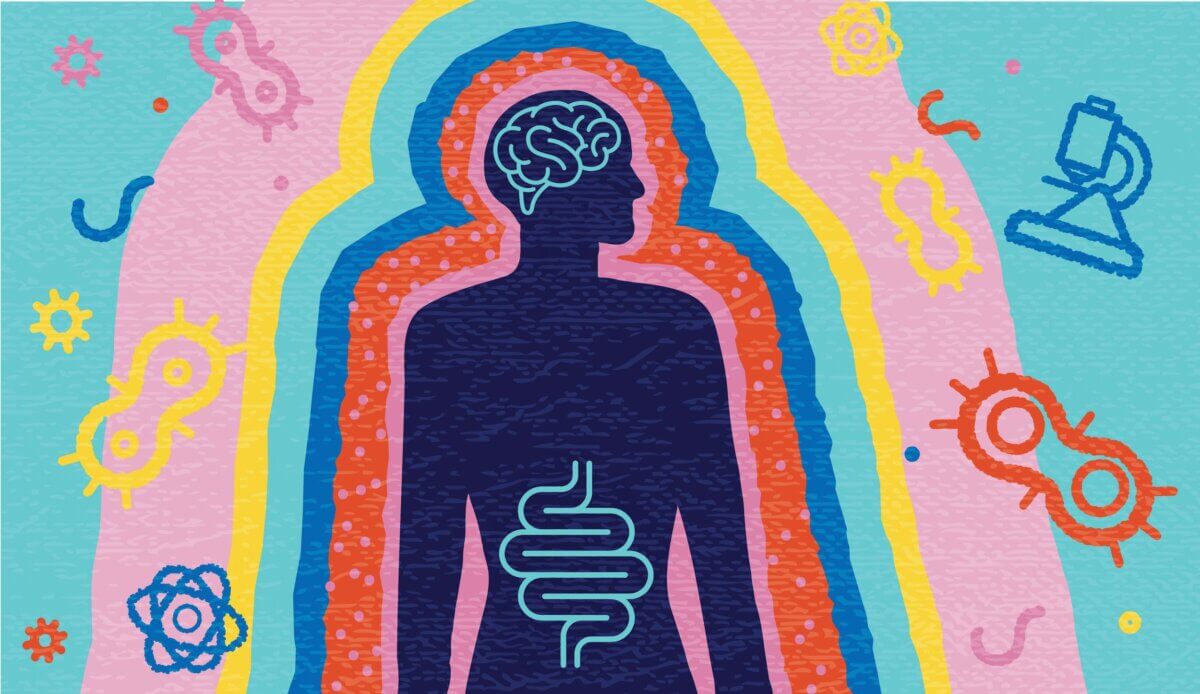Aging at Altitude
Ways to Keep Your Brain Healthy at Any Age
Brain health might feel like an obscure concept—how do we actually care for one of the most mysterious organs? What does it look like to nurture the mind and keep our neurons firing? Does staying physically active really improve my mental acuity? All valid questions, and the reality is, there are important steps you can take to make sure you’re giving your mental power and mental health good odds to keep you sharp and aware for the long haul. And the even better news? It’s probably easier than you think. Here’s a run down on how to keep your brain healthy, including the important local Aspen Valley Health resources designed to help you thrive at any age.
Understanding Brain Health Fundamentals
 Thinking, learning, mental clarity—these all fall under the purview of brain power. Cognitive health encompasses the range of mental abilities we rely on for daily functions. And as we age, neuroplasticity refers to the brain’s ability to change and adapt, forming new neural connections and modifying those that already exist.
Thinking, learning, mental clarity—these all fall under the purview of brain power. Cognitive health encompasses the range of mental abilities we rely on for daily functions. And as we age, neuroplasticity refers to the brain’s ability to change and adapt, forming new neural connections and modifying those that already exist.
You can think of neuroplasticity as the brain’s development from birth into life’s later years. The brain is an incredibly impressive and powerful organ with an ability to adapt based on new experiences, trauma and learning. This development starts at a rapid pace during fetal growth and the toddler years, then phases into a life-long stage of refinement. In this context, you can think of the brain as a giant metro system—synapses (new connections between neurons) are the trains taking thoughts, feelings, emotions and actions from one point to the next along the brain’s circuits or rail lines. Your think tank is constantly putting in new rail lines when needed and shutting down those no longer in use to keep trains running as efficiently as possible.
As we age, the brain can experience a variety of changes that affect cognitive ability, including:
Cortical Density
The cortex is the outer layer of the brain, which can thin over time when synaptic connections decrease.
Neurotransmitter Changes
Year after year, the brain might start to produce fewer neurotransmitters such as dopamine, possibly resulting in changes to cognition and mood.
Structural Changes
As we get older, areas of the brain like the hippocampus and frontal lobe, can get smaller.
White Matter Changes
Back to the train metaphor, as people age the metro system’s insulating tunnels, or myelin within the brain that insulates nerve fibers, can begin to shrink, which in turn slows down communication between neurons.
Universal Brain Health Strategies (All Ages)
So, what are some strategies you can use to keep your brain active, responsive and quick? Here are some ways to contribute to positive brain function at any age.
Physical Exercise
According to the Centers for Disease Control, “Physical activity can help you think, learn, problem-solve and enjoy an emotional balance. It can improve memory and reduce anxiety and depression.” One study found adults who don’t exercise experience cognitive decline twice as frequently as those who do. Physical activity has also been shown to increase brain volume, improve white matter integrity and enhance neuroplasticity as well as release beneficial chemicals such as endorphins and serotonin into the body.
Sleep
Much like exercise’s daily brain health benefits, sleep is just as important to keeping your mental metro system maintained throughout the night. Sleep is your brain’s opportunity to rid itself of toxins and strengthen connections. It’s essential to memory consolidation, learning and overall brain health and function. Additionally, studies show poor sleep hygiene can increase the risk of neurodegenerative diseases, difficulty concentrating and solving problems and impaired judgement.
Social Connections
Maintaining healthy and rewarding social connections is another important element in keeping your brain happy and stimulated. Connecting with family, friends and loved ones leads to cognitive reserve, reduces the risk of dementia, improves cognitive function, lessens the risk of anxiety or depression and helps preserve brain volume.
Age-Specific Brain Health Recommendations
If you’re looking for things you can do throughout your life to contribute to brain health, there are specific steps you can take at certain ages to ensure healthy brain power and structure and nurture long-term brain wellness.
Children & Adolescents (0–18)
 Physical activity is essential at any age, but particularly for the busiest little bodies. The CDC recommends school-aged children get 60 minutes or more of physical activity every day. This promotes mental health and fitness and establishes a platform for lifelong mental wellness.
Physical activity is essential at any age, but particularly for the busiest little bodies. The CDC recommends school-aged children get 60 minutes or more of physical activity every day. This promotes mental health and fitness and establishes a platform for lifelong mental wellness.
Play and creativity are another important aspect of developing strong brain function and maintaining it throughout adolescence. Creative play supports communication, social-emotional skills, cognitive function, fosters creativity and empowers problem-solving skills and critical thinking.
Screen Time Recommendations for Children
In our ever-connected world, avoiding screens can be challenging but it’s imperative to the mental health of kids and teens. The American Academy of Pediatrics (AAP) recommends the following:
- Under 2: No screen time except when video connecting with family and friends.
- 2–5: No more than one hour per day, preferably monitored.
- 6–17: No more than two hours per day outside of school or educational activities.
The type of content matters. Make sure you know what your child is watching or playing, that it’s non-violent and age-appropriate. Keep screens out of bedrooms and don’t allow screen time at least two hours before bedtime.
Sleep Recommendations for Children
Speaking of bedtime, getting enough quality sleep is critical to developing brains, including memory consolidation, cognitive function and emotional regulation. Help your child achieve the National Institutes of Health recommended sleep as often as possible:
- Newborns (0–3 months): 14–17 hours per day, including naps
- Infants (4 – 12 months): 12–16 hours per 24 hours, including naps
- Toddlers (1–2 years): 11–14 hours per 24 hours, including naps
- Preschoolers (3 –5 years): 10–13 hours per 24 hours, including naps
- School Age (6 – 2 years): 9–12 hours per 24 hours
- Teen (13–18): 8–10 hours per 24 hours
Young Adults (19–39)
As we grow, exercising our brain is as important as exercising the rest of our body. During young adulthood, building cognitive reserve means seeking opportunities for education, novel experiences, such as travel and hobbies and a stimulating lifestyle. These pursuits keep your brain active and evolving in a way that reduces risk of dementia, increases cognitive resilience and improves cognitive function. The more interested you are in learning and life, the more engaged your brain is.
Life gets busier and more demanding as the years pass, making it that much more important to establish work-life balance strategies that help keep your brain be in a happy, healthy place. Ideas for keeping the daily fray at bay include:
- Develop a daily meditation or mindfulness practice.
- Find a job you enjoy.
- Respect work hours, reserving time away from the office as just that.
- Accept help.
- Take vacations.
- Set boundaries.
- Use a calendar or scheduling software to help manage your time.
- Unplug.
- Assess priorities.
- Prioritize physical activity and self-care.
Do your best to establish healthy habits early. Making time for the activities and practices you enjoy can help combat the demands of an overconnected, overstimulated world and give your brain time to re-energize. By setting the groundwork early on, it’s easier to rely on boundaries, balance and brain-boosting activities as you age.

Screen Time in Young Adults
Managing digital overload is another key factor in maintaining long-term brain health. Too much time spent staring at screens can affect memory, attention span, cognition and possibly lead to changes in the structure of the brain. Do your best to limit screen time. Here are some tips:
- Set daily screen time limits.
- Create screen-free zones in your home, especially bedrooms.
- Turn off notifications on your phone.
- Prioritize off-line activities.
- Leave your phone at home when you exercise or gather with friends.
- Try single-tasking, which is focusing on one task at a time to improve your concentration.
Middle Age (40–65)
Into your forties, fifties and sixties can be when you begin noticing changes in cognition. Many of these are normal, but it’s a good time to develop strategies for maintaining and improving brain health. It’s important to stay mentally active as you age. Try learning a new skill or language, spend time with a puzzle, play board games, read or engage in other activities that challenge your brain.
It’s essential to get regular exercise, eat a balanced, healthy diet and stay involved in social and community activities. And don’t forget to manage stress, which can be an important tool in improving cognitive function in mid-life.
Hormones & Cognitive Function
 Those who are experiencing the hormonal shifts of middle age— menopause and estrogen decline for women and andropause and testosterone decline for men—might also notice a decline in mental acuity during this time. Estrogen helps protect the brain and testosterone also plays a role in cognitive function. This is a good time to talk to your primary care provider about strategies for managing brain health and decreasing hormone production, including the possibility of hormone replacement therapy (HRT), when necessary.
Those who are experiencing the hormonal shifts of middle age— menopause and estrogen decline for women and andropause and testosterone decline for men—might also notice a decline in mental acuity during this time. Estrogen helps protect the brain and testosterone also plays a role in cognitive function. This is a good time to talk to your primary care provider about strategies for managing brain health and decreasing hormone production, including the possibility of hormone replacement therapy (HRT), when necessary.
Targeting specific activities in middle age can help boost brain health and nourish long-term mental wellness. Focus on reducing stress and getting plenty of sleep. Engage in life-long learning. Eat a balanced, healthy diet and aim for at least 150 minutes of moderate-intensity aerobic activity or 75 minutes of vigorous-intensity aerobic activity every week.
Seniors (65+)
Many of the negative stereotypes about aging brains are just that—overly simplified and generalized ideas about what happens to our brain as we get older. As you age into your sixties and beyond, it becomes even more important to take charge of your brain health and adopt positive viewpoints and outlooks on the possibilities of cognitive skills in later life.
Improving Memory
Enhancing memory should become a part of daily life, just as important as diet and regular physical activity. Strategies for boosting your memory include:
- Spending time with others and participating in social activities.
- Engaging your brain in healthy activities such as puzzles, reading and learning a language.
- Finding healthy ways to manage stress.
- Following a daily routine.
- Using tools such as calendars and notes.
 Staying engaged with your local community and social network becomes that much more important later in life. Promoting a sense of purpose and combating loneliness contribute to cognitive health as well as improve overall quality of life.
Staying engaged with your local community and social network becomes that much more important later in life. Promoting a sense of purpose and combating loneliness contribute to cognitive health as well as improve overall quality of life.
While you might need to adapt your physical exercise routine as you age, it’s still imperative to brain health. Talk with a personal trainer or physical therapist about the best approach for your body, maintaining a weekly routine that maximizes health benefits.
Risk Factors to Monitor
Paying attention to common risk factors for deteriorating brain health can help you stay in front of them. Being a non-smoker, maintaining lower blood pressure and lower body mass index (BMI) have all been linked to younger brain age.
A variety of mental health concerns can lead to further assessment, diagnosis and treatment to help maintain a healthy brain. Talk to your doctor if you’re concerned about any of the following:
- Anxiety
- Depression
- Posttraumatic stress disorder (PTSD)
- Schizophrenia
- Bipolar disorder
- Eating disorder
- Personality disorder
- Obsessive-compulsive disorder
- Dissociative disorder

Traumatic Brain Injuries
Those who have suffered head injuries or traumatic brain injuries (TBIs) are more susceptible to long-term brain health problems. People who participate in certain sports that can result in concussions, such as wrestling, soccer or football, should talk with their doctor about long-term brain health monitoring. Certain professions and military positions can also result in potential harm to brain health.
To help reduce your risk, follow these guidelines:
- Wear seatbelts.
- Wear helmets during sports with head injury risk.
- Use other protective headgear for higher risk activities like skateboarding or contact sports.
- In the workplace, follow guidelines for head protection and fall prevention when necessary.
- Make sure your work space is well lit.
- Avoid using phones or other devices when driving or operating heavy machinery.
Want more info on living your healthiest life? Tell us what you’re interested in and we’ll send you tailored recommendations.
Technology and Brain Health
 There are a variety of ways to monitor your brain health with modern technology, including digital cognitive assessments and apps. These can help facilitate remote testing making assessments more attainable and frequent and lead to early detection of cognitive decline. Types of digital tools for cognitive monitoring include:
There are a variety of ways to monitor your brain health with modern technology, including digital cognitive assessments and apps. These can help facilitate remote testing making assessments more attainable and frequent and lead to early detection of cognitive decline. Types of digital tools for cognitive monitoring include:
- Smartphone apps that track memory, tasks and cognition.
- Web-based platforms that provide more comprehensive assessments.
- Digital clock drawing tests that detect subtle signs of impairment.
- Longitudinal monitoring, which allows tracking over time, looking for trends and patterns of change.
Like all technology, these tools come with a big caveat—talk with your doctor before engaging with them. You want to make sure the tools you’re using are reliable and scientifically validated, that they’re secure and won’t divulge private information or data, and that they’re necessary and relevant to your particular situation.
In recent years, virtual reality has come to play an important role in cognitive rehabilitation and therapy, enhancing neuroplasticity, working memory and helping modulate brain rhythms. It has been shown to be effective for people with:
- Stroke and brain injury
- Neurological conditions
- ADHD and autism
- PTSD
- Phobias and anxiety disorders
When to Seek Professional Help
Like all of the body’s systems, your brain health changes over time. Many of these changes are signs of normal aging—having a harder time focusing, difficulty multitasking, thinking a little more slowly—but there are some key warning signs of abnormal cognitive decline that are worth additional consultation. Talk to your doctor if you’re experiencing:
- Memory loss – This goes beyond simply misplacing your keys. If you find yourself repeating questions, forgetting names of people and places you know or forgetting recent events, call your doctor.
- Changes in mood – Depression, irritability, increased anxiety or a general apathy or loss of interest in life are significant warning signs.
- Language difficulties – These signs can include difficulty understanding or following conversations, trouble finding the right words or an inability to follow the plot of a book or movie.
- Changes in judgement
Healthcare providers turn to a variety of diagnostic tools to assess brain health, including cognitive assessments, brain imaging, such as MRIs and CT scans, blood tests, balance tests and EEGs, which record the electrical activity in the brain.
AVH’s Brain Health Resources
 At Aspen Valley Health (AVH), we offer a variety of support for those experiencing neurological symptoms or decline as well as programs to empower brain injury prevention and lifelong brain health. We approach every situation with the compassion and care that help remove stigma and empower our patients. Turn to AVH for cognitive health screen services, including leading-edge technologies and techniques. Our neurological specialists are here to answer questions and provide thorough assessments that help you thrive in the Aspen Valley.
At Aspen Valley Health (AVH), we offer a variety of support for those experiencing neurological symptoms or decline as well as programs to empower brain injury prevention and lifelong brain health. We approach every situation with the compassion and care that help remove stigma and empower our patients. Turn to AVH for cognitive health screen services, including leading-edge technologies and techniques. Our neurological specialists are here to answer questions and provide thorough assessments that help you thrive in the Aspen Valley.
We love our community, and we understand the inherent risks that come with living in a place that beckons daily mountain adventure and exploration. We meet you where you are with helmet education programs and traumatic brain injury services, including rehabilitation and counseling.
Conclusion
Living a healthy lifestyle requires a bottom-up-top-down approach, paying close attention and care to every aspect of whole body wellness. Your Aspen Valley Health team is here to help you achieve optimum health so you can unleash the full potential of the body’s biggest frontier—the brain.





